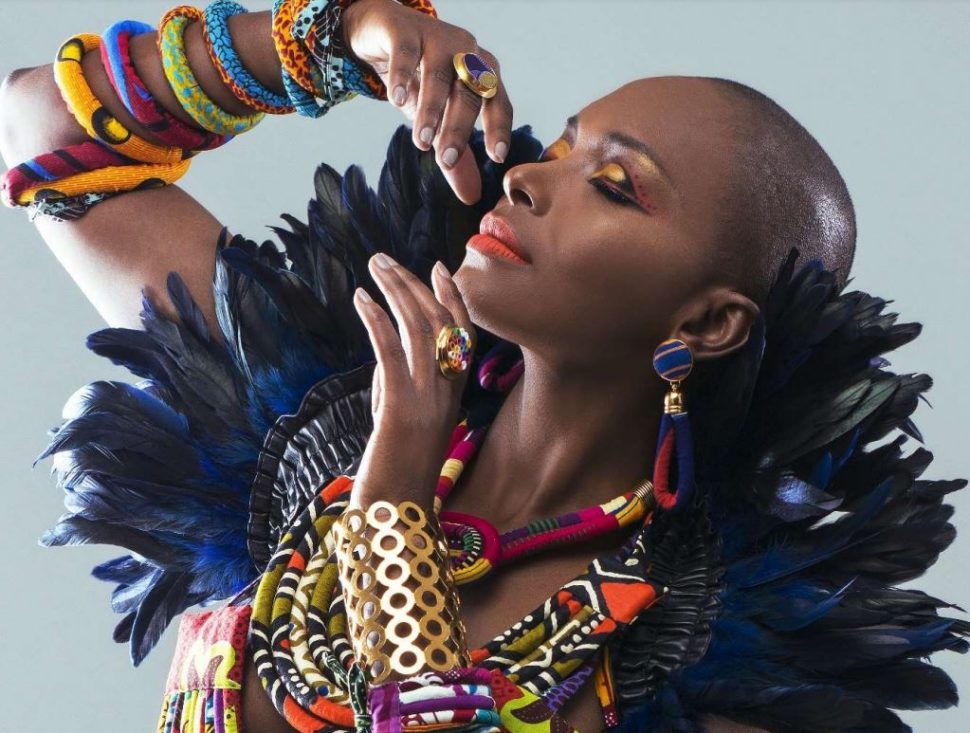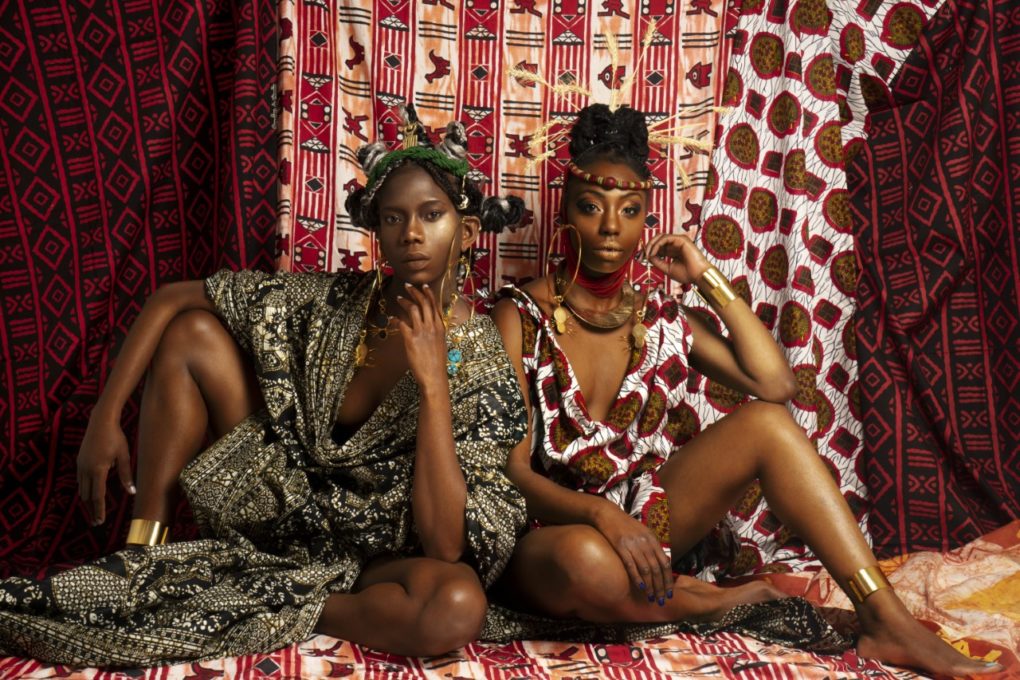Fashion designer Gretha Huffington recalled that pivotal moment in Ghana which inspired the creation of her business, Raizal Design. A local man who was observing her from a distance warmly said, “welcome home, my lost sister.”
It was simple, but poignant.
Initially, Gretha was ashamed, not because there was anything inappropriate about his comment, but she was wrestling with certain aspects of her identity. She worked to unpack some uncomfortable truths, and laid the groundwork for her business, which draws heavily from African and Raizal cultures.
“I was going through a decolonization process at the time,” Gretha Huffington told Travel Noire. “One day, I walked out of my compound in full African attire, and the man called out to me. He was clearly able to see how lost I was, and his words have profound impact to this day. I love wax print fabrics, but back then, I found them too colorful and scandalous to wear. I combined the wax print cloth with jeans or something with a plain color so that I wouldn’t call attention.”
Gretha utilizes wax prints and African textiles such as Kente, Bògòlanfini and African Batik. She also crafts various accessories like rings, bracelets and earrings. When her business was in its infancy, Gretha was on her own, but now she employs a team of mostly women.
“I create customized pieces for my clients,” she said. “I ask them what their style is, what their favorite colors are, and what the occasion is. I show them pictures of different necklines, sleeves and pocket styles to guide them. Sometimes, they come with their own ideas. When I’m home, I drape certain fabrics on my mannequins to see what works.”

After finishing high school, Gretha studied and worked in Germany before moving to Ghana. While there, she honed her sewing and design skills for three years. Presently, she lives in Bogotá with her two young daughters. Because of its ties to the motherland, Colombia is a hot spot for Black visitors and expats.
Gretha’s community, the Raizal people, are descendants of enslaved Africans and Europeans, specifically the English, Dutch and Scottish. She explained that over time, the Raizals created their own customs, traditions and culture, making them distinct from other Black minority groups in Colombia.
“I’m from the archipelago of San Andrés, Providencia Isla and Santa Catalina,” Gretha said. “These islands are located in the Caribbean, but belong to Colombia, which recognizes four groups of Black minorities: Negros, Afrodescendientes, Raizales, and Palenqueros.”
Gretha is well versed in the resilience of her people, even in the face of colonization initiatives as recent as the 1950s.
“1953 was the year Colombia began to colonize the archipelago with the intent to eradicate the Raizal culture,” she said. “The Colombian government encouraged white Colombians, Arabs and others to move to the archipelago to outnumber the Raizals.”
Efforts made to eliminate any trace of African languages within the archipelago were ultimately unsuccessful.
“Our Creole is a mix of different languages. It’s English based, with Twi from Ghana, Igbo from Nigeria, Spanish and others.”
Raizal Design enables Gretha to dress Black models, news anchors, entertainers and activists, which you can see on her Instagram page. She even rubbed shoulders with the president of Colombia, Iván Duque Márquez, who purchased a pair of earrings for his wife. But for all these incredible accomplishments, Gretha is as down to earth as a person can be, and prefers to keep a low profile whenever possible.

“Being the first designer from Providence Island who promotes our African heritage in Colombia is an honor,” Gretha said. “Art and fashion can be used as tools to both uplift and connect us.”
Just as Gretha herself has evolved, she hopes to inspire others across the diaspora to take pride in themselves and decolonize their way of thinking.
“I want to give younger generations someone to look up to. What I’ve learned is that we have to take advantage of every opportunity to change the narrative. We have to take hold, occupy and maintain spaces to tell our story as a people. I believe in the power of representation to change minds for the better.”
When she isn’t crafting beautiful works of functional art, Gretha busies herself with traveling, cooking, studying Black history, and setting an example for her daughters.
You can follow Gretha Huffington on Instagram at @raizaldesign and @grethahuffington.





